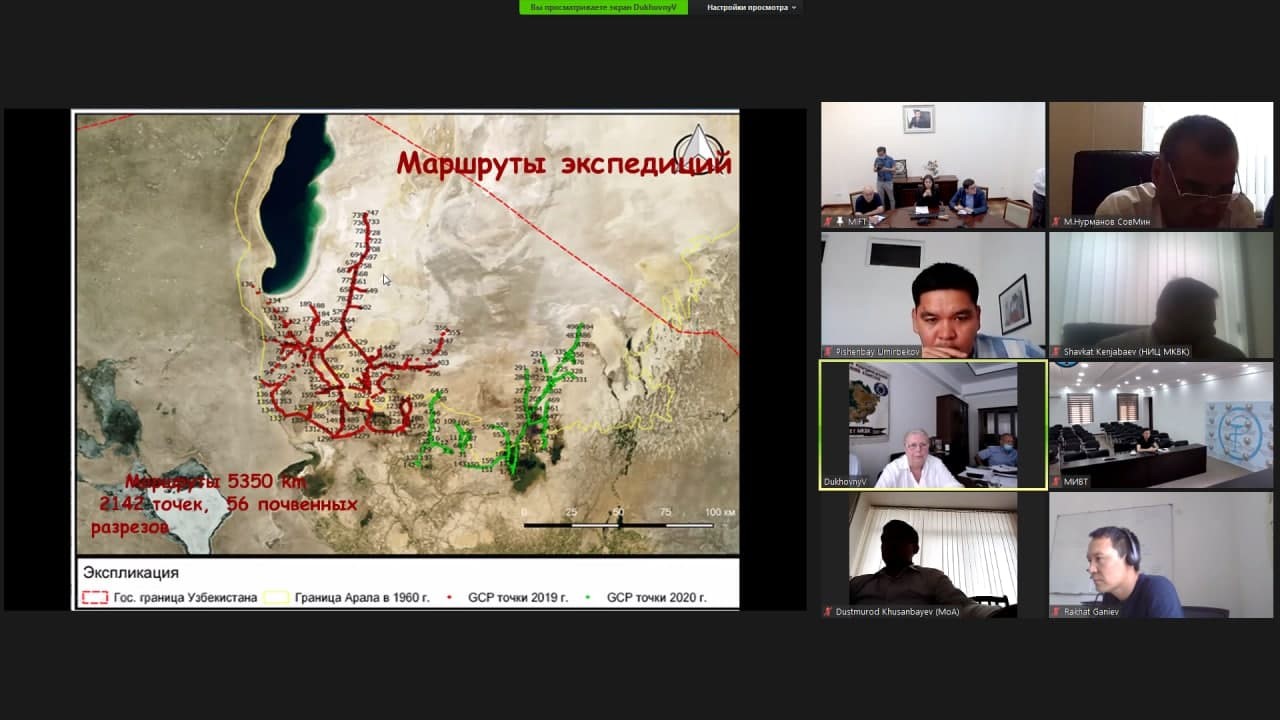MONITORING RESULTS AND FURTHER MEASURES FOR AFFORESTATION OF THE EXPOSED ARAL SEA BED DISCUSSED
The Ministry of Investment and Foreign Trade (MIFT) together with the State Forestry Committee and SIC ICWC held an online workshop “Results of monitoring and further steps for afforestation of the exposed Aral Sea bed”.

The aim was to develop concrete measures for the use of the Aral Sea dried bed monitoring results in practice. The monitoring was conducted as part of the UN Multi-Partner Human Security Trust Fund (MPHSTF) for the Aral Sea region project “Addressing the urgent human insecurities in the Aral Sea region through promoting sustainable rural development” implemented with the support of the UN Development Programme and UNESCO.
The participants noted the importance of the undertaken comprehensive assessment of the dynamics of natural conditions, including status and size of the dried area, classification of landscape, soil, hydrogeological conditions, fauna and flora. 1500 locations for afforestation and over 30 plant species were identified. And over the last 4 years, 1.7 Mha of the exposed Aral Sea have been afforested.
Special equipment - excavators, bulldozers and trucks - was delivered to the region at the expense of the Trust Fund and facilities and resources of the Takhtakupyr region forestry stations were improved. As a result, the nursery area was increased from 12 to 50 hectares, forest plantations were extended from 2,200 to 5,000 hectares and the procurement of desert plant seeds was increased from 8 to 65 tons.
In addition, 3,500 residents of five remote communities in Takhtakupyr region were provided with clean drinking water through full reconstruction and commissioning of a modern water treatment plant, installation of two desalination units and 16.6 km of water mains, and delivery of new equipment for establishment of six private enterprises.
These measures will significantly reduce transfer of salt and dust from the dried bed of the Aral Sea to the surrounding territories, preserve biodiversity, contribute to forest development and increase the forest area in the Aral Sea region. Consistent and comprehensive work in support of socio-economic development and environmental well-being in the region is one of strategic objectives of MPHSTF, which serves as a platform for joint efforts of the state and international organizations in this area.
Finally, the participants noted the important role of MPHSTF in mitigating consequences of the Aral Sea disaster and discussed priorities for interaction.
Source: IA "Dunyo"
|